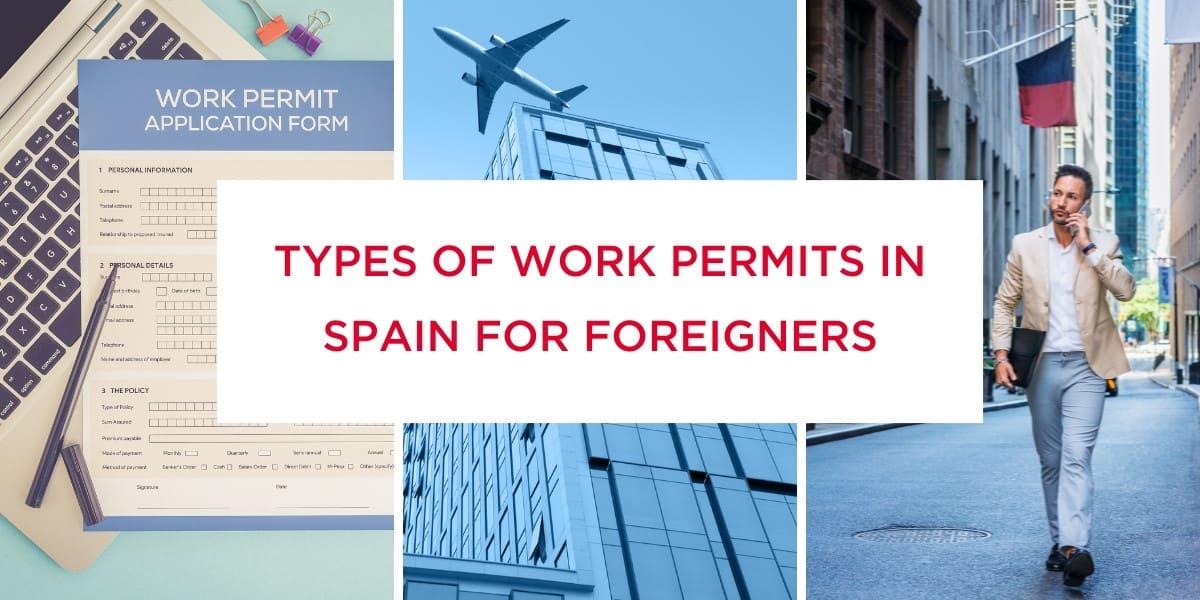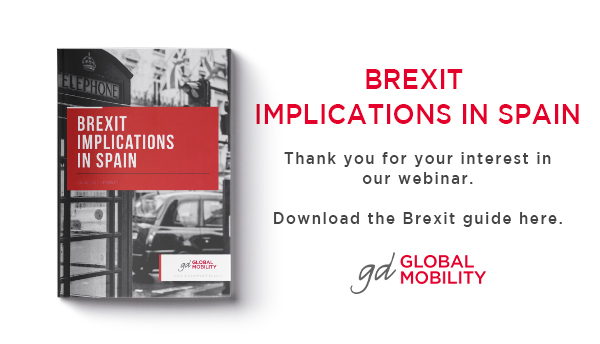
In this post you will find general information about the different types of work permits for foreigners in Spain. Depending on your situation, one type of permit or another will be the most appropriate.
Spain and work visas
The work permit is an authorization that is granted to foreigners who want to start a work relationship or professional relationship in Spain. In order to get it, you need to meet a series of requirements, which vary depending on the type of permit applied for.
Regulation of work permits in Spain for foreigners
Spanish immigration legislation, as well as its administrative processes, can become somewhat complex.
There are two regulations that reflect the categories of work permits that exist in Spain:
- In the first place, the Immigration Law (2000) seeks to order migration flows so that they only take place when there are no Spanish candidates for the job in question. Therefore, we could say that this regulation was created in order to prioritize the hiring of Spaniards.
- Second, the Entrepreneurs Law (2013), which aims, through immigration policy, to encourage the attraction of talent and foreign investment in Spain. Unlike the Immigration Law, this second normative text was created with the intention of attracting international talent to increase the productivity of Spanish companies.
These two laws cover the three scenarios in which a foreign person who needs to apply for a work visa in Spain can be found:
- As an employer who is going to start a professional activity;
- As a locally hired worker in Spain with a desire to remain in the country;
- As a worker temporarily posted to Spanish territory.
Once the scenario (1, 2 or 3) is identified, it is relatively easy to determine the requirements that must be met in order to obtain the necessary work permit.
Therefore, we must bear in mind that there are several types of authorizations provided by Spanish legislation so that foreigners can carry out their activity in Spain. Both the requirements and the procedure for obtaining authorization will be different depending on certain characteristics, such as the worker's nationality, dependency (employed or self-employed), and qualifications (whether they are highly qualified or not), etc.
Is the worker from the European Community or from outside?
When choosing the right work permit, the first step is to distinguish whether we are dealing with a community or non-community worker.
If the worker is a community worker (a national of a member country of the EU, Switzerland, or a country in the European Economic Area, or one of their family members) they can work in Spain without having to apply for any ordinary work permit as they are protected by the Law of free movement. They simply have the obligation to register as a community resident in Spain. In this case, they only need to obtain the Certificate of Registration of the European Union.
That is to say, if the worker is a community member (or family member of a community member) and wants to work in Spain, they are obliged to document the situation and not to apply for an authorization. This is one of the main differences between the migratory figure of the community member and the non-community member. A series of specific work permits are intended for the latter situation, which are explained below.
To better understand the types of work permits for non-community members and which is the most appropriate in each situation, first of all, it is necessary to differentiate whether the non-community worker is coming to work in Spain as an entrepreneur/self-employed worker (that is, is coming to establish a business activity) or coming as an employee (that is, with an employment contract).
Main work permits for employers | Spain
Spanish legislation establishes three main work permits for employers who want to come to Spain to develop their professional activity.
Residence Authorization for Entrepreneurs in Spain
Firstly, there is the Residence Authorization for Entrepreneurs, intended for those foreigners who are going to develop an innovative economic activity or one with added value in favor of the Spanish economy.
This work permit has many advantages: for example, it gives the possibility of obtaining legal residence prior to the establishment of professional activity. Why is this situation so advantageous? Mainly because it "eliminates the fear and uncertainty" of assuming establishment costs without the guarantee of later being authorized to reside in Spain.
Residence Authorization for Investors in Spain
Secondly, there is the Residence Authorization for Investors. To obtain it, an economic investment must be undertaken in Spain:
- € 500,000 if it is an investment in real estate;
- €1,000,000 if it is a bank deposit or investment in shares in companies or investment funds;
- Or € 2,000,000 if it is in Spanish public debt.
In addition, it also authorizes its holders to be self-employed.
Residence and Self-Employment Authorization
Alternatively, there is the Residence and Self-Employment Authorization, designed for those foreigners who are going to establish a business or work in a company in which they have more than 24% of the shares.
Work permits for foreigners hired in Spain or at origin
Where is the employment contract and payroll located? In the country of origin (posted persons regime) or in Spain? Asking this question and knowing the answer is a fundamental step in determining the immigration status under which the corresponding work permit will be processed.
If the worker maintains their contract in the country of origin (that is, outside Spain), the options of intra-company or transnational transfer of services can be considered. If the posting takes place within the European Union, the option of choosing a Van der Elst Visa can also be considered.
Otherwise, if the worker is hired by a company from Spain, the following options will have to be assessed, which we develop more broadly in the sections below:
- Authorization for a highly qualified professional.
- Work permit for working for others.
- Residence authorization for internships.
There are a multitude of work permits for foreigners who are going to be hired locally, but we will stick to the three most common ones.
Residence Authorization for Highly Qualified Professionals
Broadly speaking, this work permit is aimed at covering managerial or highly qualified jobs, in those cases in which the workers either have a higher education qualification or have equivalent professional experience, in both cases related to the position offered. Other relevant requirements are the minimum salary demands (greater than €40,000 for qualified technicians, €54,500 for managers, and €30,000 for those under 30 years of age or in business projects considered of interest to Spain).
Residence Authorization for Internships
This work permit is aimed at both:
- The incorporation of workers who obtained their higher education qualifications in the two years prior to signing the contract.
- The incorporation of internship students.
It does not have great limitations, which is why it has turned into the preferred way to incorporate young foreign talent.
It is valid for a maximum of two years, but at the end of the first year it can be modified into a work permit for working for others.
Work Permit for Working for Others
This is the work permit that serves for any job position, as long as the national employment situation allows it, that is, that there are no unemployed individuals who can occupy the position.
Although the current situation in the Spanish labor market does not favor the processing of this work permit, some exceptions are established to the requirement of national employee status, such as the cases of trusted personnel, qualified workers, nationals of Peru or Chile, legal residents and their relatives, etc.
It is not the most advantageous work permit or the fastest to obtain, but it is an option to consider when the requirements of the two previous work permits are not met.
Worker temporarily posted to Spain
These are the cases in which workers maintain their employment relationship and salary with the company in their country of origin, which temporarily transfers them to Spain to provide a service. In this situation, a Business Transfer Work Permit must always be applied for, the main requirements of which are to have been in the position for three months, and either have a higher degree or alternatively three years of professional experience in the job.
Our GD Global Mobility team can manage one of these work permits for you whether you come to work in Spain for yourself or for someone else. Do you need a company that processes work visas? We can help you start the procedures to legalize your situation in this country. Contact our service for processing of work permits in Spain for more information.



